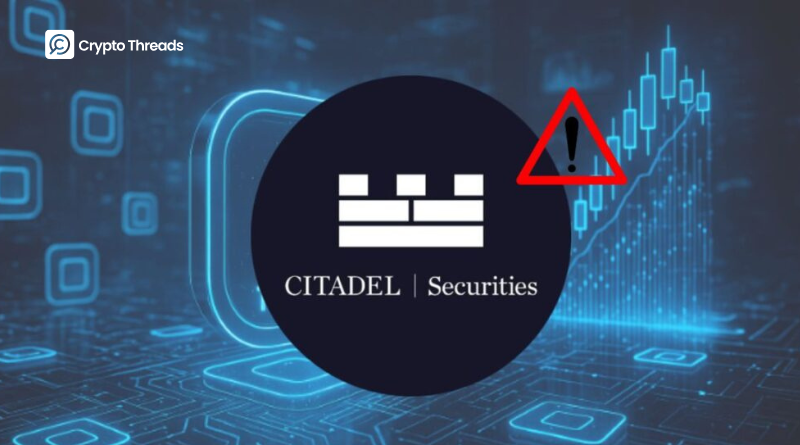Citadel to SEC: Stop Tokenization That Exploits Legal Loopholes
Key Takeaways
- Citadel Securities argues that securities tokenization must deliver real innovation, not just legal advantages
- Liquidity risks: Tokenization could “drain liquidity” from traditional markets
- Institutional challenges: Traditional banks face difficulties with security, volatility, and digital asset management
- Real-world tokenized assets currently valued at approximately $25 billion USD
Citadel Securities’ Perspective
While the U.S. Securities and Exchange Commission (SEC) continues to study new regulations around securities tokenization, Citadel Securities has expressed serious concerns about the direction of these efforts.
In a formal statement submitted to the SEC’s crypto task force, Citadel emphasized that tokenized securities must prove their value through real market innovation, not by exploiting legal ambiguities for competitive advantage. The firm stressed that regulatory arbitrage undermines trust and adds long-term risk, especially when financial infrastructure is being redefined.
Tokenization: Potential and Reality
Tokenization, the act of representing real-world assets on blockchain, is often touted as a breakthrough in capital market modernization. Supporters argue it could reduce costs, accelerate settlement, unlock fractional ownership, and increase investor access across asset classes. These promises have attracted attention from both financial giants and crypto-native players. BlackRock and Franklin Templeton have joined the movement, alongside platforms like Coinbase, Robinhood, and Kraken.
According to the World Economic Forum, tokenization has the potential to transform the way capital flows across global markets. But Citadel’s message is a reality check: unless risks are identified and mitigated, this technology may erode trust rather than enhance financial performance.
Risk Warnings
Liquidity Risks
Citadel is particularly concerned that asset tokenization could:
- “Drain liquidity” from traditional securities markets
- Create “new liquidity pools” that important institutional investors like pension funds, banks, and trust funds cannot access
Challenges for Financial Institutions
Traditional banks entering the crypto market – even with more crypto-friendly regulations – will face significant challenges:
Main barriers:
- Secure custody rights
- Volatility of collateral assets
- Orderly liquidation frameworks
As Adam Reeds, co-founder of Ledn, noted: “Bitcoin lending isn’t just about holding assets; it’s about what happens when markets move quickly and ensuring customers know exactly how their Bitcoin is managed at all times”.
Current Market Situation
- Market value: Real-world tokenized assets are currently valued at approximately $25 billion USD
- Trend: Increasing participation from major institutions in this field
- Regulation: SEC Chairman Paul Atkins has supported tokenization, proposing an “innovation exemption” to encourage development
Conclusion
Asset tokenization is attracting increasing attention from both regulators and financial institutions. However, as Citadel Securities has warned, the success of this technology will depend on its ability to deliver real value to the market, rather than simply exploiting legal loopholes.
With challenges around security, liquidity, and risk management, participating institutions need careful and comprehensive strategies to ensure safety for both investors and the financial system as a whole.



